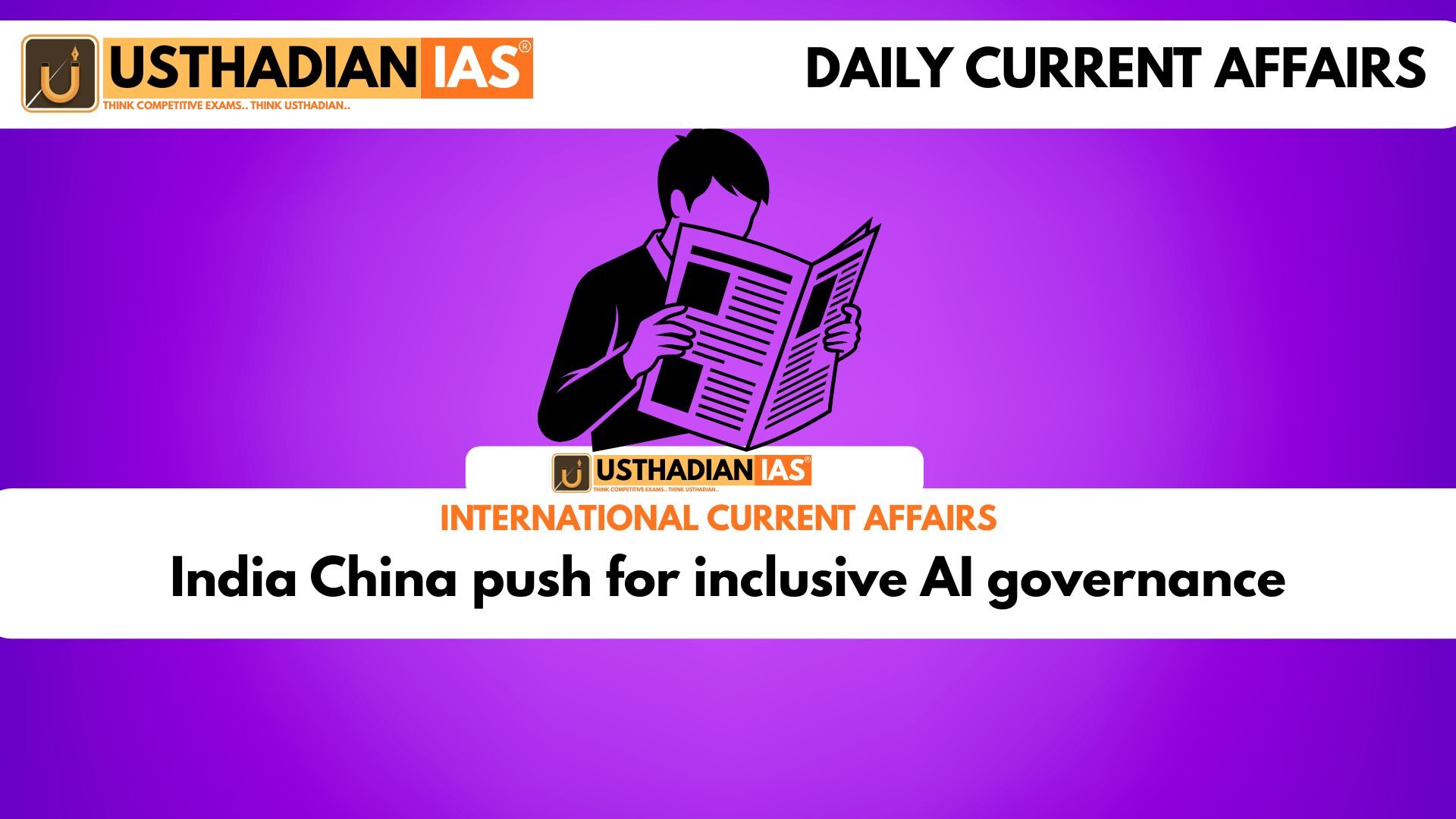Context of India China relations
India China push for inclusive AI governance: India and China remain two of the most influential powers in Asia. The Galwan Valley clash of 2020 created deep mistrust, but both countries recognise the need for cooperation on global issues. Prime Minister Narendra Modi’s 2025 visit to Tianjin for the Shanghai Cooperation Organisation (SCO) Summit marks an attempt to reset ties. The focus has shifted from territorial disputes to technology-led collaboration.
Static GK fact: The SCO was founded in 2001 with members including China, Russia, India, and Central Asian nations.
Importance of AI in global governance
Artificial intelligence is driving the fourth industrial revolution. It is transforming healthcare, agriculture, education, and manufacturing. However, AI also raises concerns over ethics, surveillance, data misuse, and job displacement. At present, Western powers dominate global AI governance through platforms like the OECD, G7, and the European Union. The Global South lacks coordinated representation, which leaves developing nations at a disadvantage.
Static GK Tip: The OECD is headquartered in Paris and has 38 member countries.
India’s AI vision
India is emerging as a strong player in the AI ecosystem. The IndiaAI Mission (2024), National Strategy for AI (2018), and AI for India 2.0 (2023) aim to integrate ethical, inclusive, and transparent use of AI. India’s AI sector is projected to touch USD 8 billion by 2025, growing at more than 40% annually. India advocates for equitable access to AI tools for developing countries and is a key member of the Global Partnership on Artificial Intelligence (GPAI).
Static GK fact: GPAI was launched in 2020 with India, France, Canada, and other members to guide responsible AI use.
China’s AI leadership
China has positioned itself as the global hub of AI research and application. Its AI industry is valued at over USD 140 billion, with ambitions to lead the world by 2030. Policies like the Global AI Governance Initiative (2023) and the Shanghai Declaration (2024) highlight inclusivity, fairness, and South-South cooperation. China also treats AI as a global public good, stressing data access and safety standards.
Static GK fact: The Shanghai Declaration 2024 focused on equitable AI for developing nations.
Scope for joint collaboration
India and China bring complementary strengths. India stresses ethics and inclusivity, while China offers industrial scale and infrastructure. Shared priorities include bridging the digital divide, fair data-sharing rules, and promoting sustainable development. A bilateral AI task force could emerge to focus on safety, ethics, and technology transfer.
Way forward
Both nations may push for a Global South AI Forum under the United Nations to counterbalance Western dominance. By working together, India and China can shape rules ensuring AI benefits reach developing societies. This collaboration could establish an inclusive order in AI governance and set a precedent for South-South partnerships in technology.
Static Usthadian Current Affairs Table
India China push for inclusive AI governance:
| Topic | Detail |
| SCO Summit 2025 | Held in Tianjin, China |
| India’s AI market | Projected at USD 8 billion by 2025 |
| China’s AI industry | Valued over USD 140 billion |
| IndiaAI Mission | Launched in 2024 to boost AI ecosystem |
| AI for India 2.0 | Introduced in 2023 for inclusive AI |
| National Strategy for AI | Released in 2018 |
| GPAI | Launched in 2020 for responsible AI |
| Shanghai Declaration | Adopted in 2024 on AI cooperation |
| Global AI Governance Initiative | Announced by China in 2023 |
| OECD headquarters | Located in Paris, France |








